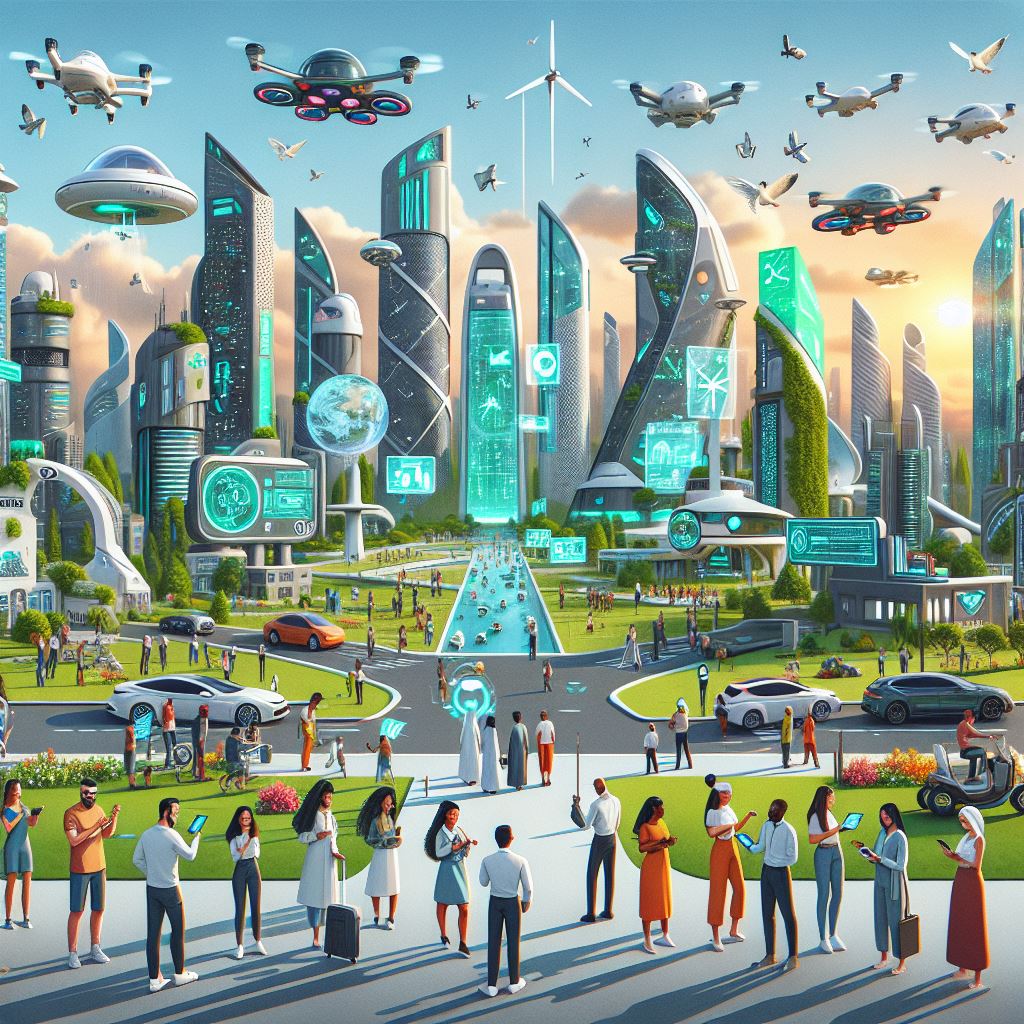The Future Unveiled: How Emerging Technologies Will Redefine Humanity by 2045
A Deep Dive into the Innovations That Will Transform Our World
.jpeg?alt=media&token=e2ff5144-ef09-435f-b791-715fbbf8aae2)
The Dawn of a New Era

In the coming decades, humanity stands on the precipice of technological revolutions that will fundamentally alter how we live, work, and interact with our environment. By 2045, we anticipate the convergence of four key technological domains that will reshape civilization: advanced artificial intelligence, quantum computing breakthroughs, brain-computer interfaces, and sustainable energy systems. This transformation will not be limited to technical spheres but will trigger profound socioeconomic changes, ethical dilemmas, and new paradigms of human experience.
1. Artificial General Intelligence (AGI) Breakthroughs
.jpeg?alt=media&token=016653ec-6068-4a3b-9945-a0f211af3b49)
The 2030s witnessed the emergence of first-stage Artificial General Intelligence systems capable of human-like reasoning across multiple domains. By 2045, these AGI collaborators will enhance scientific discovery through:
- Accelerated drug discovery combining genomic analysis and molecular simulation
- Climate modeling systems predicting regional impacts with 99.2% accuracy
- Autonomous research labs running 10,000 simultaneous experiments
However, the rise of AGI has sparked crucial debates about consciousness rights, economic displacement, and the need for global AI ethics frameworks.
2. Quantum Revolution in Full Swing
.jpeg?alt=media&token=3828a613-f097-4ba1-b2de-9d9e86370769)
Quantum computing has moved beyond experimental phases into practical applications:
• Financial systems protected by quantum encryption
• Logistics networks optimized via quantum annealing
• Material science breakthroughs enabling room-temperature superconductors
The 2043 Quantum Economic Index estimates 40% of global GDP now relies on quantum-enabled technologies, creating new cybersecurity challenges and digital divide concerns.
3. Neural Interface Ecosystems
.jpeg?alt=media&token=6a0c2b1f-bc2a-4995-9e2f-7ee1ca8a18f1)
Brain-computer interfaces (BCIs) have evolved from medical devices to consumer products:
- Direct neural access to information streams (2042: 300 million active users)
- Neuroprosthetics restoring and enhancing sensory capabilities
- Thought-to-text communication achieving 95% accuracy
Emerging issues include cognitive privacy laws and the "right to mental silence" movements gaining political traction.
4. Sustainability Through Fusion Tech
.jpeg?alt=media&token=4f5d389d-5d58-4e45-84a7-39a36f5dd749)
The 2040 fusion energy milestone transformed power generation:
• Global CO₂ emissions reduced by 65% since 2035
• Modular fusion reactors powering 40% of urban centers
• Hydrogen economy finally viable through plasma-catalyzed production
Critics warn of new geopolitical tensions over helium-3 resources and thermal pollution concerns.
The Human Dimension
.jpeg?alt=media&token=170aceaa-4667-47ed-979c-8953143e875e)
While technological progress accelerates, society faces fundamental questions:
- Redefining work in an era of cognitive automation
- Maintaining cultural identity in hyper-connected societies
- Biological vs augmented human rights
- Global governance of transformative technologies
The 2044 Paris Accord on Technological Ethics established crucial guidelines, but implementation remains uneven across nations.
Conclusion: Navigating the Future
.jpeg?alt=media&token=2386b294-cb5d-495d-a0d4-c6063c1f820a)
As we stand at this technological inflection point, strategic foresight becomes our most valuable asset. The 2045 challenge lies not in technical implementation but in:
- Maintaining ethical guardrails for exponential technologies
- Ensuring equitable access to avoid societal fragmentation
- Preserving human agency in decision-making processes
The next decade will determine whether we harness these technologies as tools for collective elevation or face new forms of digital-age stratification.